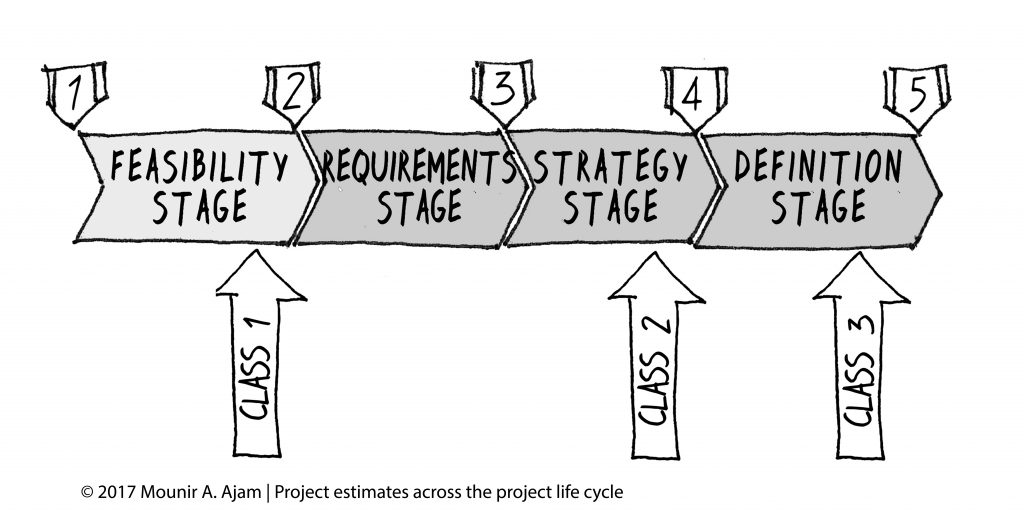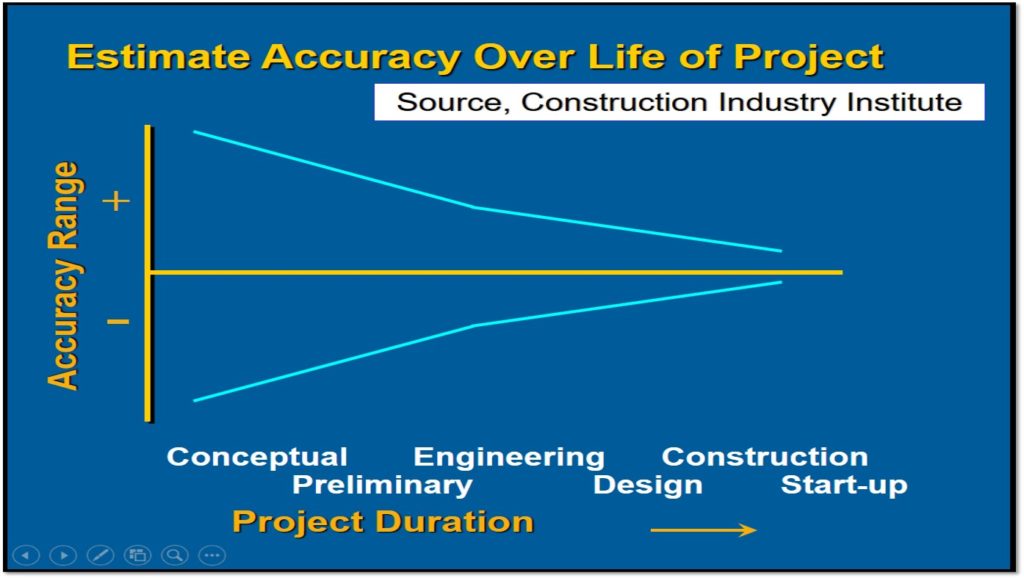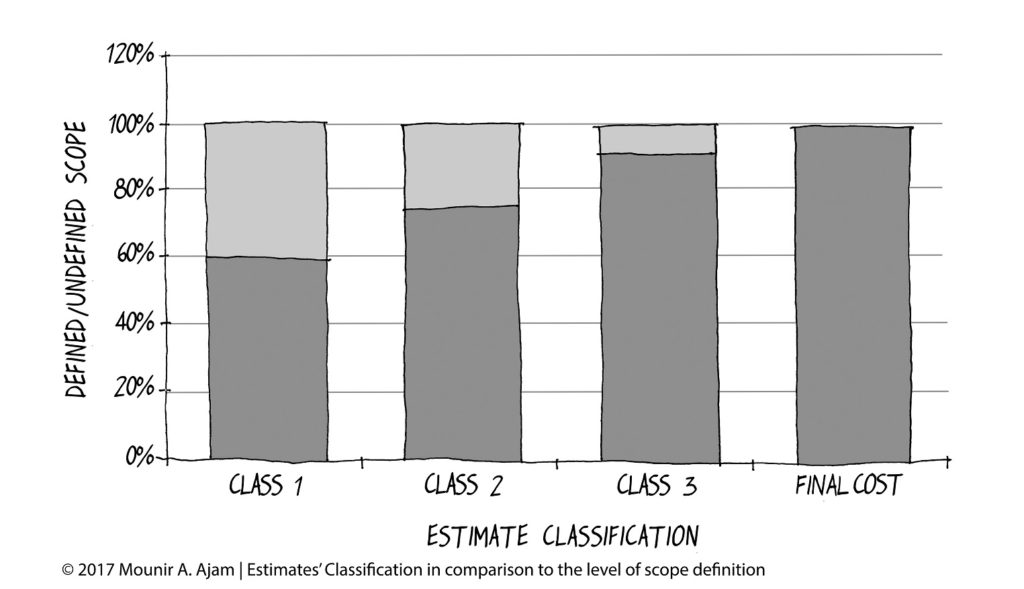The question that we address today is how to develop good cost estimates? We will present our views via four videos on cost estimating, that would address topics like, what are the components of a good estimate, what is the difference between estimating techniques and estimate classifications, and how to estimate contingency reserve. In addition, we will also highlight the relationship between scope definition, uncertainty, contingency, and estimate accuracy. One more statement/question here, do you realize that if the project manager is developing the cost estimate, that could be a conflict of interest?
You can probably claim 2 PDU for this article if you watch all of the videos. Assuming, you need PDUs.
Interested? Read more
Will start with the conflict of interest
It is common to think that the project manager is the jack-of-all-trades. Consequently, the project manager develops the project management plan including cost estimating and scheduling, etc. However, do you realize that if the project manager is developing the cost estimate, that could be a conflict of interest?
What do we mean here?
Well, do you ask your contractor to estimate your project costs or determine the project schedule? Maybe some organizations do, but is this the proper practice?
But you might say, “Mounir, the PM is an internal employee.” Maybe so, but away from being politically correct, and paper ethics, if the PM will be held accountable for the project performance, do not you think the PM will be conservative in his/her estimating; not to say include many hidden gems in the details?
I can expand on this infinitely and with many stories to prove my point, but I will leave it for you to consider the possibility. In one of the videos, we do share some thoughts on this.
Then how do ‘PM Mature’ organizations handle estimating?
The quick answer is by making the cost estimating unit independent of the project managers. The project managers will input, review, and suggest areas for the cost estimators to pay attention to, but the PM cannot dictate to the cost engineer what to include in the estimate.
What is the purpose of a good cost estimate?
As my mentor, Ralph Spears used to tell me, “Mounir, your job is to do the best you can, and that means making the estimate challenging, so the PM Team is challenged to perform, but not too stringent where it is impossible to achieve.”
Then, how to develop good cost estimates?
First, you must understand some fundamental concepts.
- Understand the difference between estimating techniques and estimate classifications.
- Learn when to use each of the techniques.
- Be able to distinguish between estimating a stage of the project versus estimating the whole project.
- Comprehend the need to classify estimates and the particulars about each estimate class, such as when to use it along the project life cycle, its accuracy, etc.
The above topics and more, are addressed in the first video, of a four-video series.
Cost Estimating Across the Project Life Cycle
The following partial lifecycle image, help in understanding the first and third videos.

What are the components of a good estimate?
The title is self-explanatory but will include a summary here.
The components of a good cost estimate are:
- Direct costs,
- Indirect costs,
- Project management cost,
- Escalation (we also discuss how to calculate),
- Tax and government fees,
- Cost of money,
- Organizational overhead, and
- Reserves.
The next video is here.
How to estimate contingency reserve?
The third video address the question of how to estimate contingency reserve. However, it also includes an in-depth discussion of the relationship between scope definition, uncertainty, contingency amount, and accuracy of cost estimates. We will show this information by drawing two curves in the video, these are shown next.
The first image shows how the estimate accuracy narrows over the life cycle of the project in relation to a higher scope definition.

This next image shows almost the same thing but in a different graphical representation.

Finally, the video.
Time for some cost estimating stories
Many of the points we raised so far, in the article and the videos, is now addressed via more points and a few stories.
Enjoy.
Do you like to get more videos like these? Let us know what topics will interest you and would be happy to work it out. Subscribe to our YouTube Channel and you will get them upon release.
Further, if you like our approach and you want more in-depth learning, check out The Quest to Mastering Project Management; since this is an outstanding online program, you can access from anywhere in the world. The focus of this program is Applied Project Management; Project-Based Learning, with the support of yours truly, the PM Coach!
